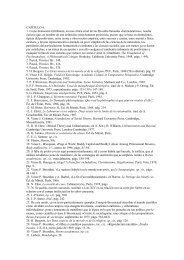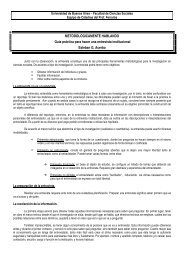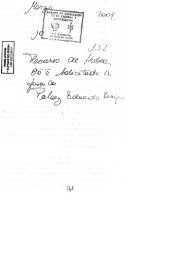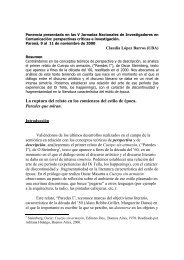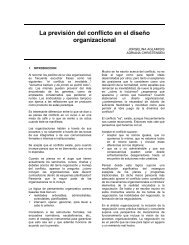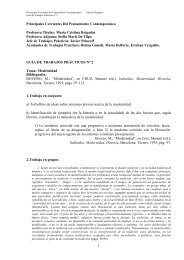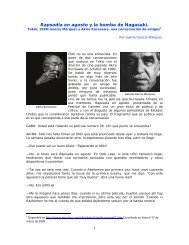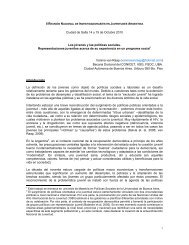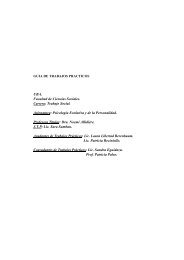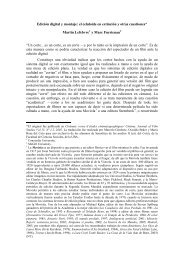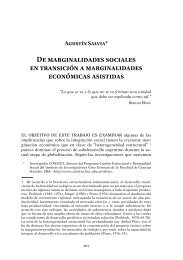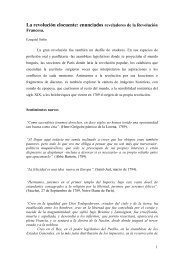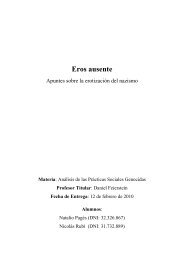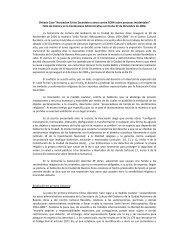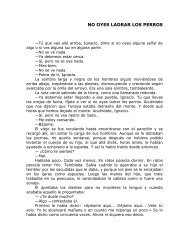Charisma Reconsidered
Charisma Reconsidered
Charisma Reconsidered
Create successful ePaper yourself
Turn your PDF publications into a flip-book with our unique Google optimized e-Paper software.
20<br />
aware was the problem of the necessarily extra-legal origins of the law itself. Law<br />
could not be founded on law because a defining feature of the law, its own legality,<br />
could not be created by the law but was rather presupposed by it. The hypothesis<br />
of a historical charismatic giver of law, like Moses, speaking not as the representative<br />
of God and divine law but entirely out of their own charisma, was a logically<br />
adequate solution to this problem. By definition the charisma of the law-giver was<br />
personal and not guaranteed by pre-existing law. This problem can be put in<br />
another way. Suppose that the interdictions of the Monsignor discussed earlier are<br />
pronounced not by a church figure, but the local Mafia capo. For Weber, this<br />
would be a source of power, but not of legitimate authority. But perhaps the<br />
problem here can be resolved simply: where there is delegation, or more generally<br />
a claim to ‘represent’, there are questions of legitimacy. I may question whether<br />
the emissaries of the Mafia capo do in fact speak for him. The capo himself makes<br />
no such claim. This suggests the possibility that there is no question of ‘legitimacy’<br />
apart from questions of delegation: for primal authority, whether it is<br />
rooted in the dangerousness of the sacred or dangerousness as such, the distinction<br />
between legitimate and illegitimate does not apply.<br />
The Trajectory of <strong>Charisma</strong><br />
Weber himself provided some elements for a perspective on the historical occurrence<br />
of charisma that fit with this ‘anthropological’ reconstruction of the<br />
argument. The premodern world of demons, magic, witchcraft, extraordinary<br />
popular delusions, curses, and so forth, is one in which the occurrence of the<br />
charismatic, or the interpretation of the world in ‘charismatic’ terms, is sociologically<br />
‘normal’ – a part of everyday life. Modern rationality means the end of<br />
the enchantment of the world as a condition of life and of the role of danger<br />
and the sacred from which primitive charisma arises. The disenchantment of the<br />
world reduces the future of charisma to the personal ‘presence’ of an individual<br />
before a small circle of personal followers. Thus in a rationalized world, the<br />
phenomenon of personal magnetism now came to seem to be the core of<br />
charisma, the last residue. Stripped of its support in magical thinking, it cannot<br />
easily develop into anything more. Only when a radical change undermines the<br />
rationalization of the conditions of life might new prophets arise, or old ideals be<br />
reborn.<br />
What is peculiar about this trajectory is that it was spectacularly wrong,<br />
both with respect to politics and with respect to celebrity. Each of these errors<br />
needs to be dealt with separately. Hitler and Mussolini rose to influence in the<br />
decade after Weber’s death. Subsequently, there was a long parade of charismatic<br />
leaders, especially on the margins of the developed world. Hugo Chávez, Kwame<br />
Nkrumah, Saddam Hussein, Slobodan Miloˇsevic, the Ayatollah Khomenei,<br />
Osama bin Laden, Fidel Castro – each fits this type. Bin Laden, indeed, is a figure<br />
right from the pages of Weber, and has often been described by his Muslim<br />
JOURNAL OF CLASSICAL SOCIOLOGY VOL 3(1)



